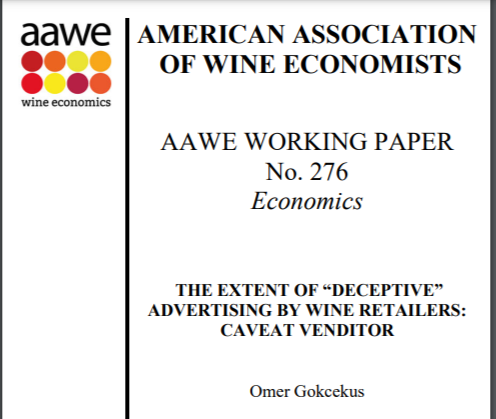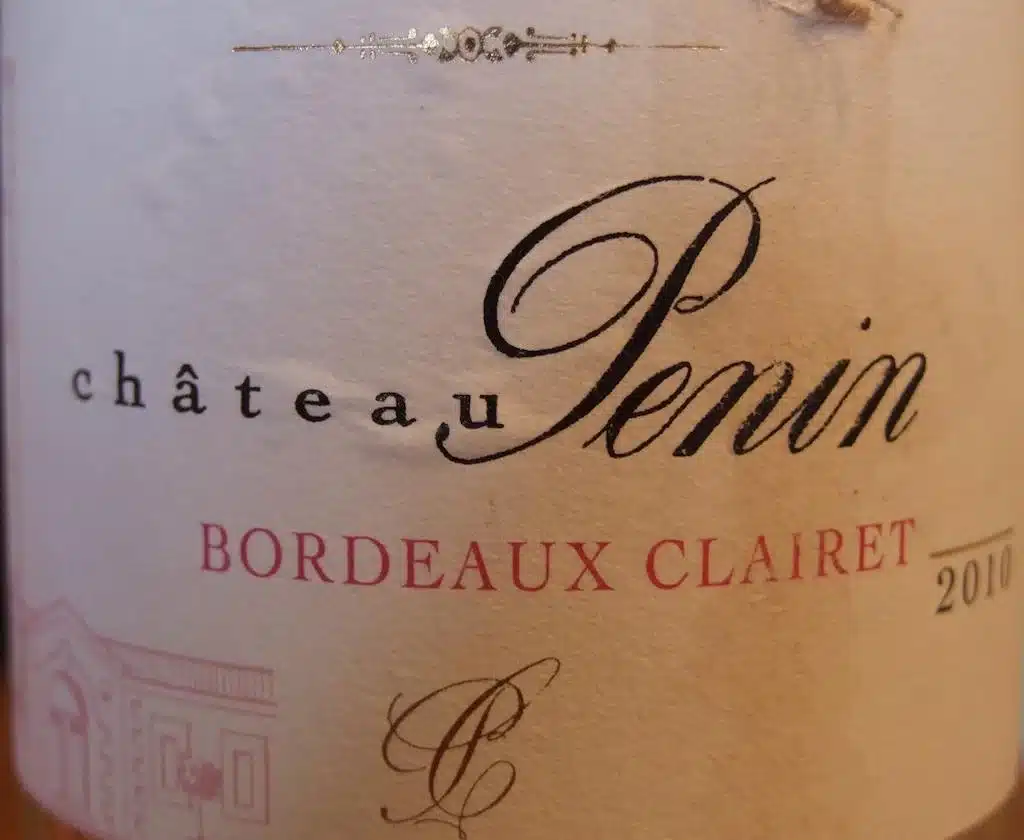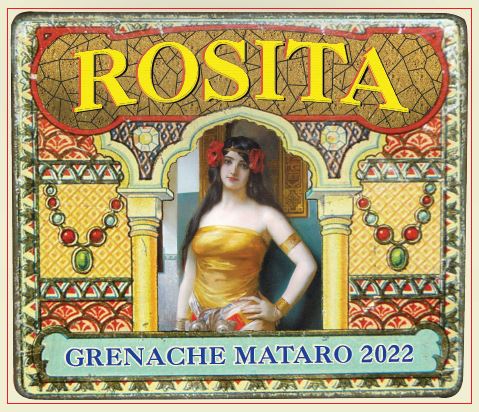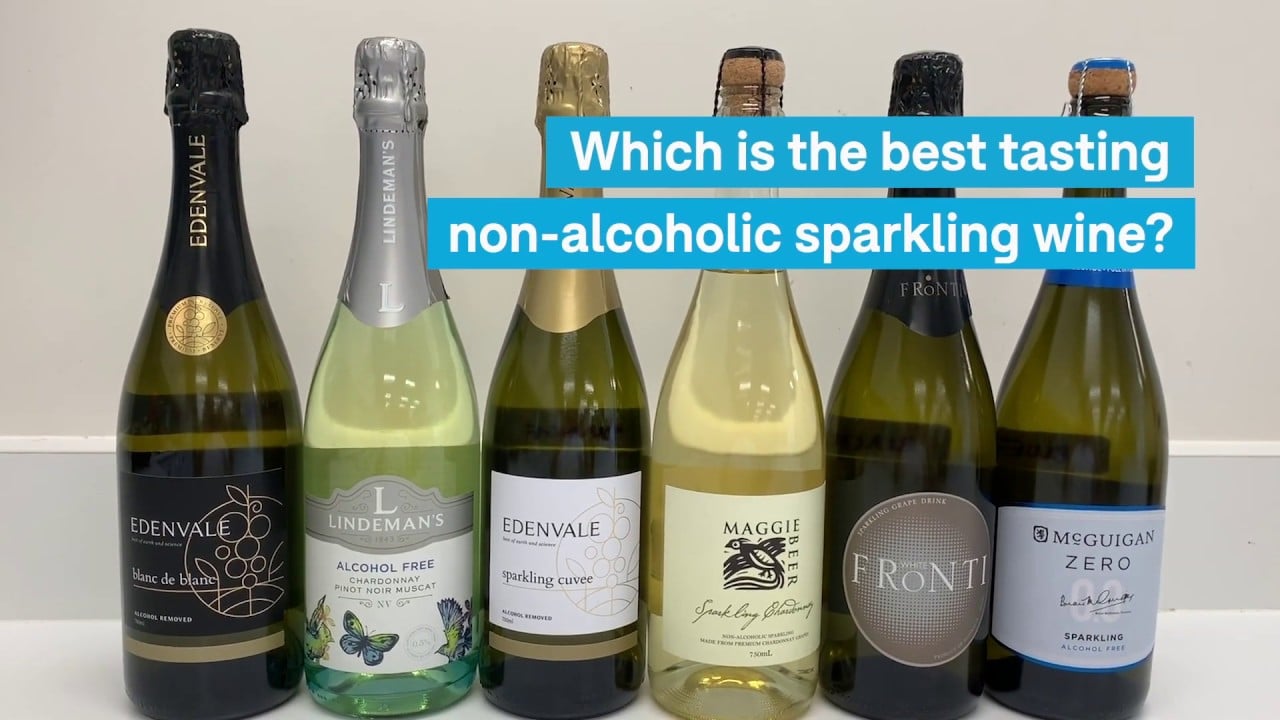Widespread deceptive advertising by wine retailers is the cautionary tale of a US academic about buying online appearing on the website of the American Association of Wine Economists (AAWE). False claims about expert opinions and “deep discounts” when compared to regular prices abound writes the author of the Working Paper “The extent of ‘deceptive’ advertising by wine retailers”.
First some qualification and clarification. Omer Gokcekus is at the School of Diplomacy and International Relations, Seton Hall University, South Orange, NJ. Presumably his interest in retailing is as a consumer not a diplomat but hardly the less valid for that. And his observational study of online wine sales was limited to analysing 258 emails received between April and November of 2022, for $10,016 worth of wines from two major wine retailers in New Jersey, USA. Not a large sample on which to condemn an industry but Gokcekus also provides supporting evidence from other studies.
The abstract of his paper summarises his key findings:
Specifically, I determined the accuracy of two major claims that were made in these emails: (1) that all wines have 90+ scores; and (2) that these wines are offered at a deeply discounted price. Both claims were accurate in only 3.9% of cases; at least one of the claims (either price discount or score) was accurate in 31.4%; and both claims were inaccurate 64.7% of the time. Additionally, for 49.3% of the wines advertised there was at least one concealed critic’s score under 90 points. Most strikingly, based on what the emails claimed, recipients of these emails would save 37.2% if they purchased from the advertising retailer. However, recipients could have purchased these wines by spending 12.7% less than the advertised “discounted” price, by purchasing elsewhere.
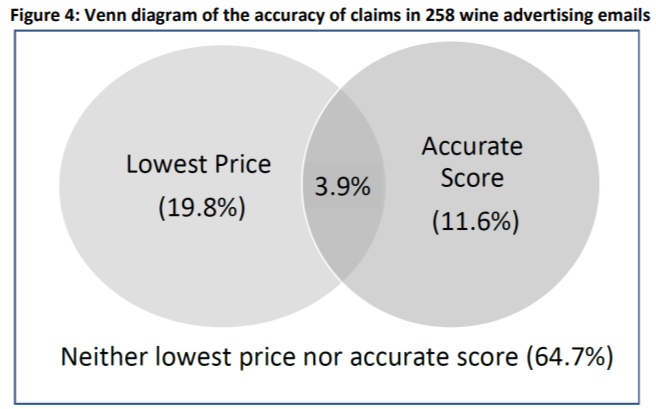
That diagram summarizes that two claims in retailers’ emails— (1) that all wines have 90+scores; and (2) that they are offered at a deeply discounted price—were accurate in only 3.9% of cases; at least one of the claims (either price discount or score) was accurate in 31.4%; and both claims were inaccurate 64.7% of the time.
More importantly, a recipient of these emails, rather than saving 37.2% (as claimed) could have purchased these wines by spending 12.7% less than the discounted prices.
It is not a pretty picture of the industry I’ve been involved in for 48 years delivering wine around the country. Alas I’m afraid it’s a pretty accurate one in my experience.
As we wrote recently, “Glug is not in the wine payola business which makes us something of an exception in our industry. We do not pay for reviews on blogs or getting marks out of a 100 on some website or other and then pay again to put little stickers on our bottles.”
We can but agree with this Gokcegus conclusion:
The finding that deceptive advertising seems to exist in online wine marketing is concerning for both consumers and other wine retailers that do not engage in these practices. Such advertising negatively impacts consumers’ purchasing decisions by presenting false or misleading information, and deceptive advertising practices create an unfair competitive advantage for businesses that engage in them, making it difficult for honest businesses to compete.

